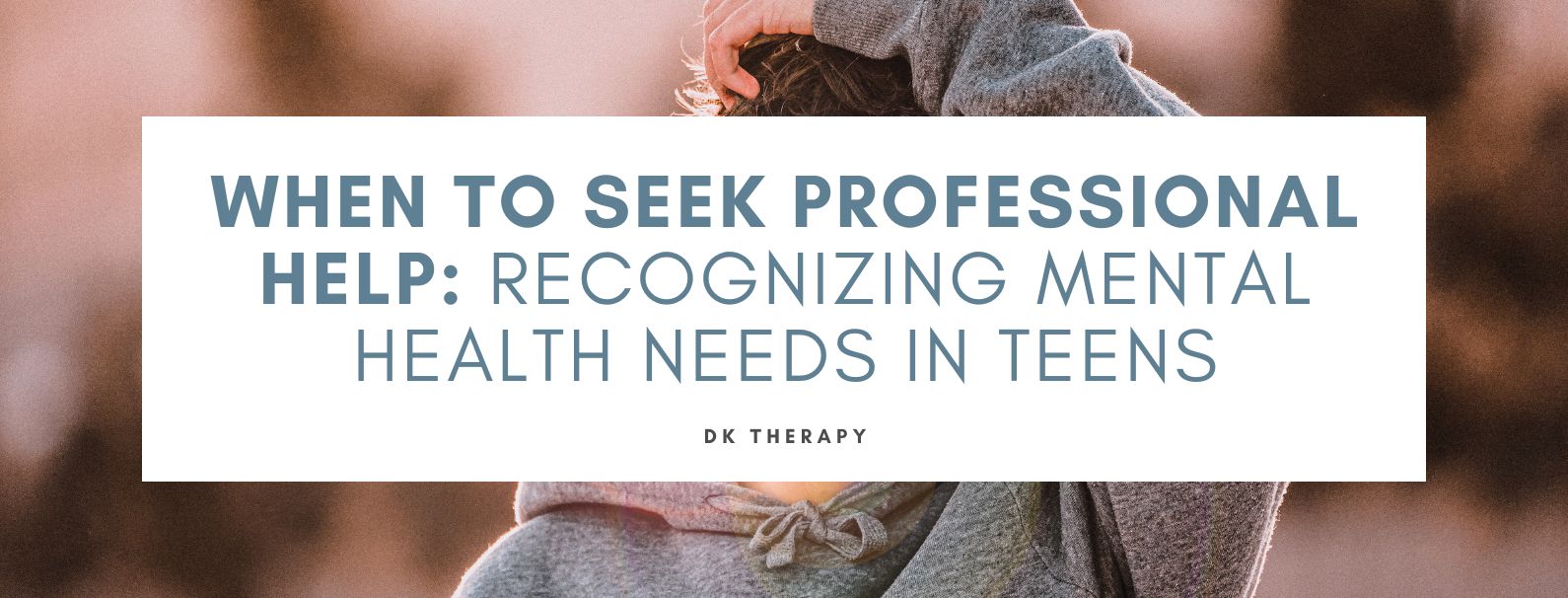
Mental health is a key component of overall well-being, and for teenagers, recognizing when professional help is needed can be life-changing. Both teenagers and their parents should be aware of the signs that point to a greater need for support. Understanding what to look for can help prevent long-term struggles and ensure teens have the care they need to thrive.
Recognizing the Signs in Teens
Adolescence is full of changes, but some behaviors and feelings are well beyond typical teenage mood swings. Here are a few indicators that a teen may need professional help:
- Persistent Sadness or Irritability: Feeling down, hopeless, or unusually angry for more than two weeks
- Withdrawal from Friends and Activities: Avoiding social interactions, quitting hobbies, or expressing disinterest in previously enjoyed activities
- Sudden Decline in Academic Performance: Struggling with schoolwork, missing assignments, or displaying a lack of motivation
- Changes in Eating or Sleeping Patterns: Drastic changes, such as sleeping too much or too little, or eating excessively or barely eating
- Risky or Self-Destructive Behavior: Engaging in reckless activities, such as substance abuse
- Difficulty Concentrating or Making Decisions: Frequent confusion, trouble focusing, or indecisiveness
- Expressions of Hopelessness or Suicidal Thoughts: Any talk of self-harm or suicide
How Parents Can Support Their Teen
As a parent, recognizing these warning signs is only the first step. Providing an understanding, safe environment can make it easier for teens to open up about their struggles.
- Start an Open Conversation: Approach your teen with empathy and without judgment. Let them know you are there to listen and support them.
- Normalize Mental Health Discussions: Encourage conversations about emotions and mental health just as you would with physical health concerns.
- Encourage Professional Help: If signs persist, a therapist, counselor, or psychologist can provide both guidance and intervention.
- Monitor but Avoid Overbearing Control: Keep an eye on your teen’s behavior, but respect their privacy. Encourage independence while maintaining a safety net.
- Be a Role Model: Show that taking care of mental health is important by prioritizing your own well-being and seeking help when needed.
How Teens Can Pursue Mental Health
If you’re a teen experiencing any of these concerning signs, know that seeking help is a sign of strength, not weakness. Here are a few ways you can take the first step:
- Talk to Someone You Trust: Whether you trust a parent, teacher, school counselor, or friend, opening up about your feelings can help you find support.
- Look for Professional Help: Therapists and counselors routinely help teens manage emotions and develop coping strategies.
- Practice Self-Care: Take part in activities you enjoy, such as exercise, journaling, or creative hobbies.
- Know That You’re Not Alone: Many teens experience mental health struggles. Support groups and online resources can provide a sense of community and understanding.
When to Seek Immediate Professional Help
If a teen is having suicidal thoughts, self-harming, or experiencing severe distress, immediate action is incredibly important. Contact a mental health professional, crisis hotline, or emergency services. The 988 Suicide & Crisis Lifeline is available 24/7 in the U.S. for immediate support.
Recognizing the signs of mental health struggles and seeking help early can make a significant difference in a teen’s life. Whether you’re a teen or a parent, knowing that support is available and that mental health is just as important as physical health is essential. Seeking professional help when needed is a proactive step toward a healthier and happier future.
If you’re struggling and think it’s time to seek professional help, please contact DK Therapy and schedule an appointment with our office.




